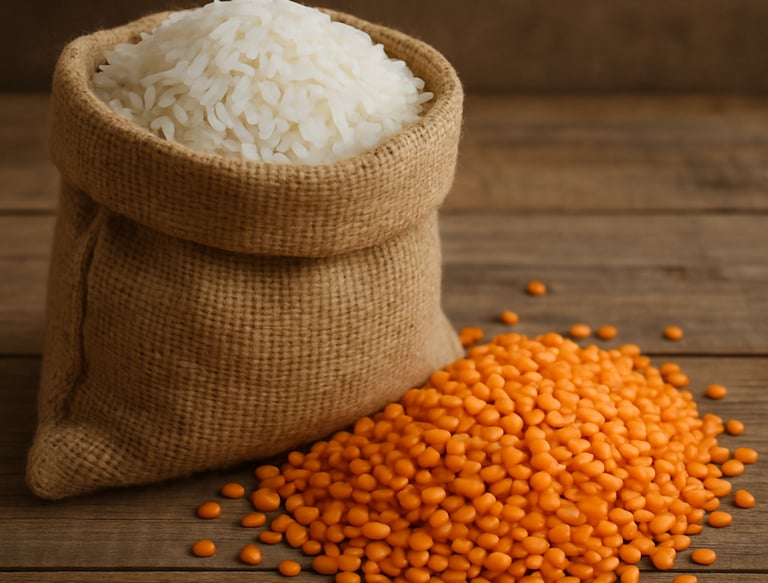Caramel Drizzle: "Overflowing Kindness"
From the mountains of Afghanistan to my kitchen counter, I've learned that God's sweetest grace often comes disguised as ordinary moments of human connection.
DAILY REFLECTIONS
Wandering Armenian
8/9/20254 min read


The path wound upward through rocky terrain, my backpack loaded with rice, lentils, and precious antibiotics. My feet ached, sweat stung my eyes, but I pressed on, driven by that peculiar mixture of idealism and stubbornness that defines young aid workers.
When I finally reached their home, I found a modest structure of mud brick and hope. I found Fatima, Zahra's grandmother, sitting cross-legged in the narrow doorway. She was perhaps sixty, though hardship had etched deeper lines than years alone could manage. Her dark eyes studied me with a wariness I'd grown accustomed to.
"Another foreigner," she said quietly in Dari, assuming I wouldn't understand. "They come with their promises, take our photographs, and leave."
Her words stung because they held truth. I had seen colleagues who treated aid work like spiritual tourism, collecting stories of poverty to share at dinner parties back home. Was I any different? I asked myself.
I knelt beside her, setting down my pack. "Tasweer na, faqat dawai baraye Zahra."["No pictures,"] I said in broken Dari. ["Just medicine for Zahra."]
Fatima's eyes widened slightly at my attempt at her language, but suspicion remained. She had every right to doubt, foreigners had made promises here before, governments had offered help that never came, and NGOs had established programs only to abandon them when funding dried up.
Caramel Drizzle: "Overflowing Kindness"
Scripture: "But when the kindness and love of God our Savior appeared, he saved us..." Titus 3:4-5 (NIV)
The wooden spoon moved rhythmically through the bubbling caramel, transforming simple sugar into liquid gold. But as I watched the amber sweetness swirl, my thoughts drifted back twenty-one years to a moment that changed how I see kindness forever.
I was thirty-six then, working with a relief organization in Afghanistan and on a field trip the remote Paktika province. The villages were scattered like forgotten coins across barren mountainsides, each one carrying stories of resilience I was only beginning to understand.
The Ahmadi family lived three hours by foot from the nearest road. Drought had claimed their crops for the second consecutive year, and eight-year-old Zahra had been running a fever for weeks with no access to medical care. When our team received word, I volunteered to make the trek with basic supplies and medicine.
As I unpacked the supplies, explaining each item slowly, I could feel her watching me. Zahra appeared in the doorway, pale but curious, followed by her mother Amara. Three generations of women who had learned to expect little from the outside world.
I handed Fatima the antibiotics, demonstrating the dosage. "For the fever," I explained. Then came the rice, the lentils, the small solar lantern I'd brought as an afterthought.
It was then that something shifted. As I placed the lantern in Zahra's small hands and watched her face illuminate with wonder, Fatima reached out and covered my hands with hers—weathered, strong, impossibly gentle.
Be Bakshid ["Forgive me,"] she whispered, tears gathering in her eyes. "I see now. You are not here for yourself."
In that moment, I understood I was witnessing grace, not just in my small act of service, but in her willingness to trust again after disappointment. Her kindness toward me, a stranger who had done so little, revealed something profound about the human heart's capacity for hope.
We sat together as evening approached, sharing tea and broken conversations in mixed languages. Fatima told me about her late husband; a teacher killed in the early days of conflict. Amara spoke of dreams for Zahra's education. I shared stories of my family, my own grandmother who had taught me to see God's face in unexpected places.


When I finally prepared to leave, Fatima pressed something into my palm—a small carved wooden bird her husband had made. "So, you remember," she said, "that kindness flies both ways."
Now, as I drizzle this golden caramel over my son's birthday cake, I think of that wooden bird sitting on my desk and the lesson Fatima taught me. The caramel doesn't discriminate, it flows into every crevice, sweetening the bitter dark chocolate beneath, spreading further than I intended, covering more than I expected.
That's exactly how God's kindness works. It doesn't wait for perfect circumstances or deserving recipients. It flows freely, reaching into the cracked places of our hearts, softening what seemed permanently hardened by disappointment or loss.
Fatima's trust, offered despite her valid reasons to withhold it, became God's kindness made visible. My small gesture of service, imperfect as it was, became a vessel for grace neither of us had anticipated.
The sweetest truth I learned in that Afghan village is this: we are all both givers and receivers of God's overflowing kindness. Sometimes we carry the caramel; sometimes we are the cake being covered by it. But always, always, grace flows beyond our control, beyond our expectations, making all things sweeter than they were before.
Reflection: Where in your life do you need God's "caramel kindness" to flow over bitter disappointments? How might you be that unexpected sweetness for someone who has grown weary of hoping?
Your kindness flows where hearts are broken,
Sweet grace over wounds left unspoken.
In every crack, your love takes hold,
Making weary spirits brave and bold.

